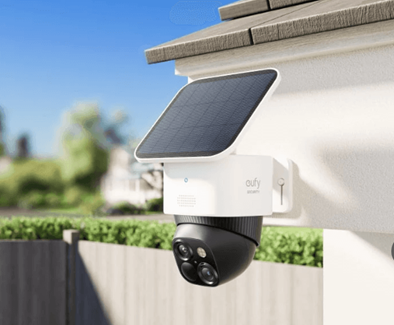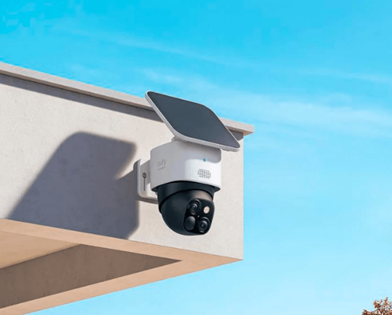Achin Bhowmik, Ph.D., is chief technology officer at Starkey and adjunct professor at Stanford University.
Artificial intelligence (AI) is the new electricity. This is how Stanford University colleague Andrew Ng describes the wide adoption and deep impact we’re seeing with AI. It’s a strong statement to make but one that has merit given the unprecedented pace of advancements in recent years. AI is transforming the way people are living their lives. It’s opening up doors that were previously in the realms of imagination.
You’ve used AI in face and voice recognition and heard of its deployment in self-driving cars and autonomous robots. Although these applications are fascinating to see, I believe one of the most intriguing uses of AI is in harnessing it to enhance and augment human sensory perception and communication. Our eyes, ears, skin, nose and tongue are all sensors that interact with our brain, helping us develop a model of the world we’re in and how we experience it. The idea of using technology to augment these processes to enhance our perceptual capabilities is no longer science fiction.

When I left a Silicon Valley-based tech giant and joined the hearing industry, hearing aids were a lot different than they are today. In the old era of computing, engineers handcrafted algorithms to endow the devices with different settings that needed to be manually invoked for various listening situations. Now, we’ve entered a new age of computing in which machines use AI to become smarter based on the data they’re trained on. Like a child learns based on experiences, these devices are able to make decisions on their own by analyzing and classifying the surrounding environment based on machine learning techniques. When it comes to hearing technology, this has opened up a new world of possibilities.
According to the World Health Organization, over 1.5 billion people live with hearing loss globally. People with normal hearing have the natural ability to adjust and adapt to difficult listening situations. The ears and brain work together to help you hear and understand the most important sounds, such as a friend speaking in a noisy coffee shop. This automatic biological process often goes unnoticed or is taken for granted until someone begins suffering from hearing loss. When it stops working, hearing becomes a difficult task. Today, AI is starting to make hearing effortless again.
MORE FOR YOUGoogle Issues Warning For 2 Billion Chrome Users
Forget The MacBook Pro, Apple Has Bigger Plans
Google Discounts Pixel 6, Nest & Pixel Buds In Limited-Time Sale Event
New AI-empowered hearing aids can help pick out the sounds a user would prefer to hear from a cacophony of information that inundates the auditory system. They do this by analyzing the acoustic environment and automatically adjusting the hearing aid. So, if you’re stepping into a noisy building from the quiet outdoors, the hearing aids know how to adjust themselves to better suit the new environment. They recognize if you’re in a conversation, listening to music, taking a walk in a windy environment or if there’s a running vacuum cleaner around you, and they automatically optimize the amplitude-frequency profile of the sound delivered to your ears. These changes happen instantaneously. To the user, it’s almost like a rebirth of a lost biological capability.
When technology experts speak about transformations in personal computing, they often talk about the transition from the desktop computers of the past to the all-encompassing computers we now keep in our pockets—the cell phone. Now, with AI, the modern-day hearing aid ushers in the next frontier in this journey. What could be more personal than a smart device that fits in your ear, helps you hear the world better, translates languages, acts as a personal assistant, gives you voice reminders, monitors your health and alerts loved ones about falls? All of this is technology that exists today and fits seamlessly into users’ lives.
For me, there’s nothing more fulfilling than seeing technology enhance the way people live. We’re just starting to scratch the surface when it comes to AI. When people talk about this technology, its impact is not 10 years from now. It’s now.
Forbes Technology Council is an invitation-only community for world-class CIOs, CTOs and technology executives. Do I qualify?









